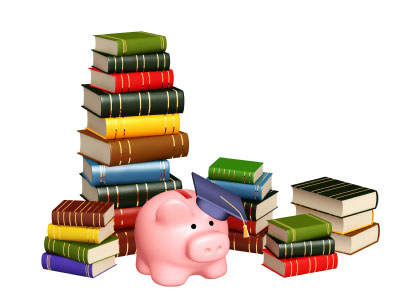1975: College Prep: Academic Skills and Finances Among Incoming Students

In 1975, the war in Vietnam finally ended as Communist forces controlled Saigon, and South Vietnam surrendered unconditionally. While Bill Gates and Paul Allen created Microsoft and started to market personal computers to the American people, events of 1975 centered around the global recession that continued to affect nations around the world. For instance, New York City avoided bankruptcy when President Ford provided a $2.3 billion loan and the unemployment rate hit a high of 9.2%. Goods and services continued to become more expensive and education was no exception. Tuition rates and other costs related to attending college increased and more students were receiving financial aid. It is within this context that the CIRP Freshman Survey introduced a question specifically about financial aid and why students are receiving this support. The question asked:
If you are receiving financial aid from this institution, what is your understanding as to the basis on which your aid was awarded?
- Financial need
- Academic talent
- Athletic talent
- Other special talent
The response options included: “not a reason,” “minor reason,” and “major reason.”
The majority of freshmen indicated that they were receiving financial aid because of financial need (61.8%). There was a substantial percentage that indicated that they received financial aid due to academic talent (23.4%) as well. The percentage of students who believed they were awarded financial aid due to athletic talent was relatively low (7.1%), but the majority of these students were male. There was a huge gender gap within this category, where 11.8 % of males indicated that they believed their athletic talent was the basis for their financial aid, compared to only 1.4% of females.
Additionally, the survey asked about the confidence with which students felt that they were prepared for college level academics. This was the first time that this question was asked and it set the stage for subsequent years where students were asked to reflect on their academic experiences in high school. Specifically, the question stated:
How well do feel that your high school prepared you in the following areas:
- Mathematical skills
- Reading and composition
- Foreign language
- Science
- History, social sciences
- Vocational skills
- Musical and artistic skills
- Study habits
The response options for this question were: “poorly,” “fairly well,” and “very well.”
What is interesting about this question is that it asks students to reflect on their preparation for college as a subjective measure of their preparedness. This question is especially interesting considering these students have not even taken any classes yet. While 40.6% of all students indicated that they felt that their high schools prepared them “very well” in history and social science, only 15.4% of them said the same about foreign language. Furthermore, within these academic disciplines and skill sets, there are gender differences in terms of preparation as well. For instance, male students felt they were more prepared in math and science than female students (math: 29.9% for males, 25.2% for females, science: 34.9% for males, 29.4% for females). Females felt more prepared in reading and composition and music and art than their male counterparts (reading and composition: 36.1% for females, 26.1% for males, music and art: 27.2% for females, 19% for males). Even though there were these gender differences within the various academic subjects, it is interesting to note that in general, the majority of students did not feel very well prepared in any category. The highest percentage of students to indicate they felt that their high school prepared them “very well” was in history and social sciences, at 40.6%. This reveals that students in general did not feel very confident about the education they were receiving from their high schools.
Did you know…
33.6% of all entering freshmen agreed somewhat or strongly that people should not obey laws which violate their personal values
29.8% of all entering freshmen agreed somewhat or strongly that the activities of married women are best confined to the home and family
